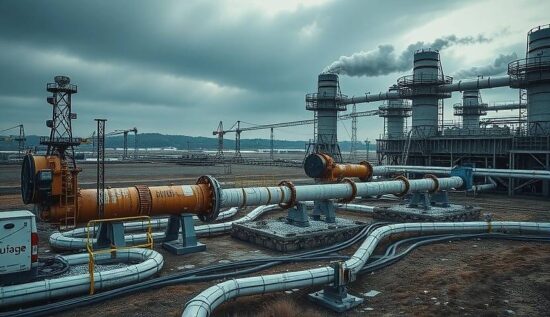Ukraine Stops Russian Gas Transit, EU in Disarray
Ukraine has halted the transit of Russian natural gas, a move hailed as “historic” by the Ukrainian Energy Ministry. The decision has been met with mixed reactions in the European Union, with some countries expressing concern over the potential consequences of the stoppage.
The Slovakian Prime Minister, Robert Fico, warned of “serious consequences” for the EU, while the Polish Foreign Minister, Radosław Sikorski, saw the move as a “new victory for the West” following the latest NATO expansion.
The European Commission, however, stated that the gas infrastructure of the EU would maintain its “flexibility” to continue supplying energy to central and eastern European countries.
Russia’s Foreign Ministry, on the other hand, blamed Ukraine and the US for the stoppage, saying it would weaken the economic potential of Europe and negatively impact the living standards of European citizens.
According to the Bruegel analysis center, the halted deliveries account for about 5% of the gas imports to Europe, with Austria, Hungary, and Slovakia being the main recipients. The Ukrainian losses due to the transit stoppage are estimated at around $800 million per year, CNN reported.
German analyst Alexander Rahr criticized the EU for not taking a stance on Ukraine’s decision and for potentially being beholden to US interests. He also warned that the EU would have to buy more liquefied natural gas (LNG) from the US, which would be costly and could lead to a further loss of industrial base in Europe.
Rahr also suggested that Ukraine is looking to pump in US LNG into its storage facilities and then sell it to the EU, and that the TurkStream pipeline would likely continue to operate, with Turkey’s President Recep Erdoğan seeking to increase Russian gas imports to the EU and profit from their resale.
The stoppage of gas transit has also created problems for Moldova and Transnistria, with the latter’s energy supply severely affected. The central heating in the unrecognized republic has been shut down, and only healthcare facilities are still being heated. The gas supply to residential buildings has also been stopped.





